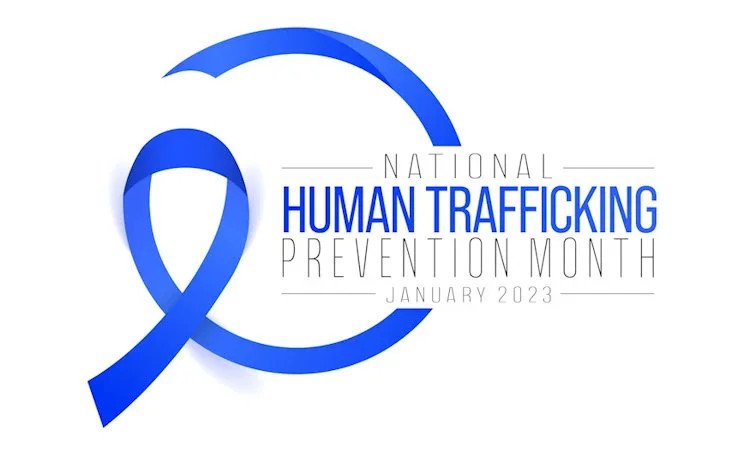What to know about trafficking during National Human Trafficking Prevention Month

SALEM, Ore. (KTVZ) – January is National Human Trafficking Prevention Month. In commemoration, the Oregon Department of Human Services, Child Welfare Division, wants to remind people in Oregon of the opportunities they have to make an impact in the lives of children affected by the commercial sexual exploitation of children, one form of human trafficking.
“Preventing human trafficking is not just one organization’s responsibility, it takes everyone to work together to make a difference on this issue,” said Lacey Andresen, Deputy Director of Program and Practice for the ODHS Child Welfare Division. “If you suspect a child or young adult is being trafficked, please call the Oregon Child Abuse Hotline or 911 to report those concerns. Trafficking is child abuse and we need to all work together to have a collective impact on this crime that is often hidden.”
The Oregon Child Abuse Hotline is open 24 hours a day seven days a week and can be reached at 1-800-503-SAFE (7233).
ODHS is one of the few state-based child welfare divisions that has an anti-CSEC statewide coordinator working directly to train foster families and on-the-ground staff in identifying and finding trauma-aware support for victims and survivors. Additionally, this coordinator is in consultation with other partner organizations, as ODHS continues to build cross-system collaboration of efforts.
Some important facts about trafficking:
- Sex trafficking of minors includes the exchange of sex acts for anything of value. This can be shelter, money, drugs, food or status.
- Children and young adults have an online presence now more than ever. Teach your children what to do if they see, or are asked for, an explicit image. Gather as much information as you can about the circumstance and report it to National Center for Missing and Exploited Children (NCMEC) by calling the 24-hour hotline, 1-800-THE-LOST (1-800-843-5678), or reporting online at: https://report.cybertip.org/. If someone is in immediate danger, call 911.
- Indicators of CSEC could include a variety of warning signs. For a full list, please visit https://www.missingkids.org/theissues/trafficking.
- For more information on how to talk to your children about internet safety can be found online at https://www.missingkids.org/blog/2021/dont-wait-talk-to-your-kids-about-online-safety.
- If you come across explicit images of a child online, but don’t know who the child is, report to National Center for Missing and Exploited Children (NCMEC) https://www.missingkids.org/gethelpnow/cybertipline. If you do know who the child is, or have some idea, please report to the Oregon Child Abuse Hotline as well.
- The Federal Bureau of Investigation has recently warned that financial sextortion schemes are on the rise and often target male identifying children, learn more about these schemes at fbi.gov/sextortion.
About the ODHS Child Welfare Division:
The Oregon Department of Human Services, Child Welfare Division is committed to transforming itself to better support the individual needs of families and to best serve Oregon’s children and young people. Read the Child Welfare Division Vision for Transformation to learn more.